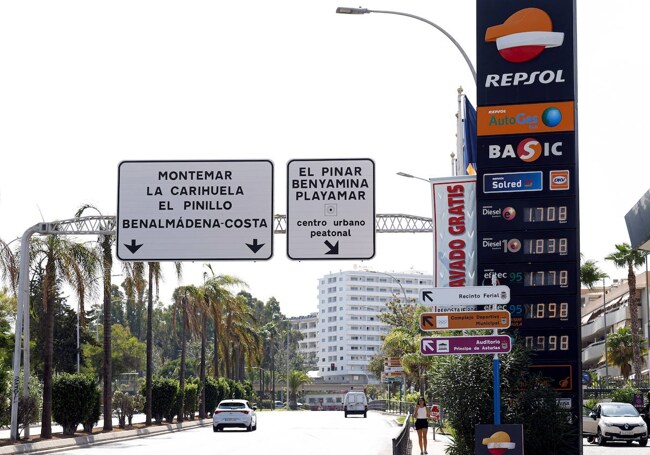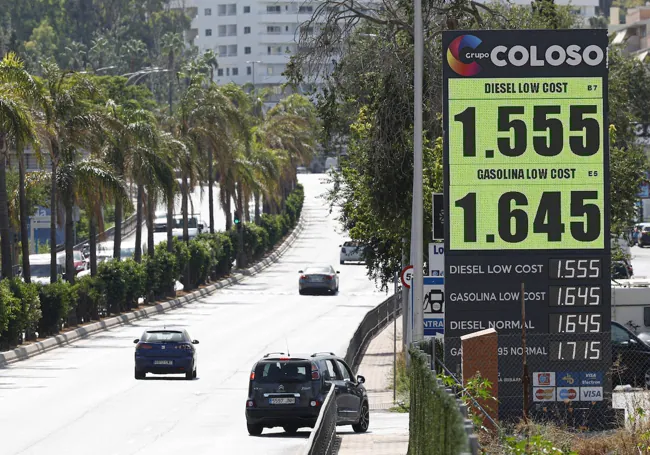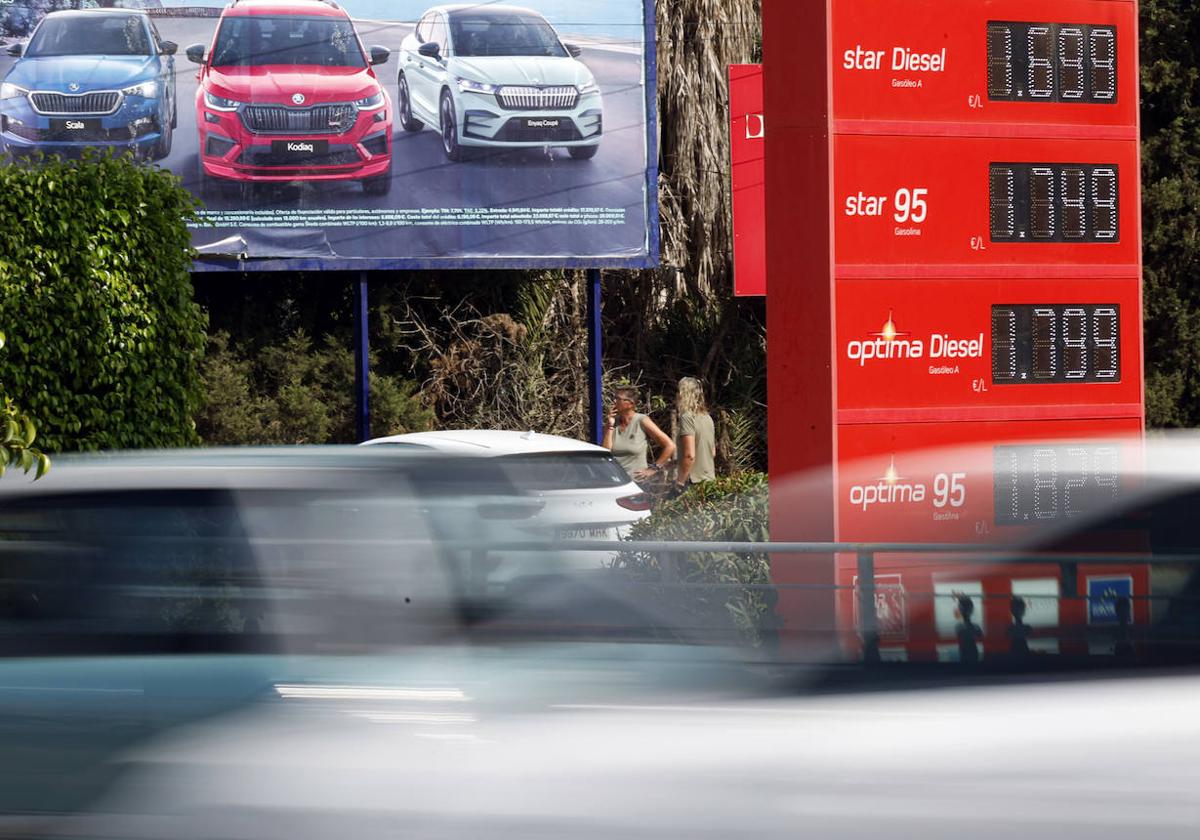Filling up the fuel tank in Malaga: more than 23 euros difference depending on the petrol station you choose
The province is one of those with the greatest price difference between forecourt operators in Spain, sitting just behind the Canary Islands
Choosing the cheapest petrol station to fill up can mean a saving of more than 23 euros for an average 60-litre tank. And this is especially true for Malaga, which is the Spanish province (only behind the Canary Islands) where there is a greater price difference between the 'low cost' and branded stations, although only in the case of petrol.
That is according to the report distributed yesterday by Spain's national association of automatic (generally non-staffed) fuel stations (Aesae), which is the employer's association that brings together the so-called 'unattended' forecourts (although some of them do have a minimum staff to help users).

The maximum saving, depending on the area, varies between 8 and 23 euros in the case of 95-octane petrol, and between 11 and 24 euros in the case of diesel, for an average 60-litre tank.
How to save money...
Updated daily, these are the fuel stations in Malaga province with the lowest prices
The greatest price difference in Spain is in the Canary Islands, with up to 48 cents for petrol and 46 cents for diesel. But in mainland Spain, Malaga stands out, a province where, according to this report, a difference of up to 0.39 euros per litre of 95-octane petrol can be found.

As for diesel, which is the most used fuel, the change (although not negligible) is not so great: if you choose the cheapest one, you can save up to 0.35 euros per litre, or 21.00 euros per tank. In this case, Malaga drops to eighth position and Madrid, with 41 cents, is the province with the most radical differences.
The study was carried out this September, after comparing the highest and lowest price offered in each region, using the information supplied by the Ministry for Ecological Transition and the Demographic Challenge's website, explained the organisation. "In a context where we are returning to the highs of the last year in prices, it is necessary to go for competition and transparency. Petrol stations are working hard to offer the lowest prices and to help drivers. This policy of low prices is more evident when the price of fuel rises", commented Aesae.
The main reason for this difference is the lower cost structure of fully automatic stations compared to traditional ones. In addition, these types of centres have the freedom to choose the product from the wholesaler, approved by the authorities, who offers the best price, so that the savings are passed on to the consumer, according to the group.
José Rodríguez de Arellano, CEO of Plenoil, which is one of the main operators in this new 'low cost' market in Malaga province, considers that the results of the report "are not unreasonable", and explained: "The prices in the most expensive petrol stations are going up a lot to offer discounts for combined consumption (for example, electricity or gas); they raise the price on the board and then on top of that they give you a discount".
The growing presence of this operator in the market is reflected in the fact that it has just become the first company in the self-service station sector to become a member of the main national business organisation, the Spanish Confederation of Business Organisations (CEOE).
Is it really that much?
SUR has consulted an independent expert on the conclusions of the report. Antonio Ruiz is a Malaga businessman specialising in the sale of diesel to professionals, who also has his own service station in the province of Seville. "The market is 100% free and anything can happen, although we still tend to think of a monopoly. In the Spanish market there are operators like Repsol who have 50% of the petrol station market and who sets the price, but you can have another station next door that sells it cheaper".
Ruiz did a quick exercise in Malaga and what he observed was that, as of yesterday, the maximum difference was 22 cents per litre in the province, although "there may be days and times when it is greater". "0.20 euros is the average difference between the most expensive and the cheapest, which is good enough," he said. In his opinion, the key is the increase in competition, which has almost doubled, so the market has become more fragmented: "Before, they used to sell a tanker full or one and a half a week, now there are petrol stations that take between two and three weeks to sell it".
The businessman is in favour of the 'low cost' brands: "They offer a product of the same quality as the others, even with additives, and they have found a segment of the market; but there are also people who love their car and who like to use a prestige brand because they think it is better, and they have every right to do so".
Ignacio Fernández Martínez, technical secretary of the Agrupación Andaluza de Vendedores al por menor de Carburantes y Combustibles (Agavecar), the employers' association of regular service stations, questioned the conclusions of the study carried out by the competition, insofar as it does not take into account the loyalty discounts that several of the main oil companies offer their customers.
"Repsol gives discounts that add up to 40 cents, that has to be assessed and seen before giving a definitive figure and if they are not taken into account, they are cheating". To which he added: "We start from different positions, we have to evaluate the whole service as a whole, but I doubt that it is that much, because in some areas, where the unattended ones are isolated, the prices are similar to conventional ones".


